
Assisting journalists forced to flee censorship
CPJ’s Journalist Assistance Program supports journalists who cannot be helped by advocacy alone. In 2011, we assisted 171 journalists worldwide. Almost a fourth came from countries that made CPJ’s Most Censored list. Eight journalists from Eritrea, five from Syria, six from Cuba, and a whopping 20 from Iran sought our help after being forced to…
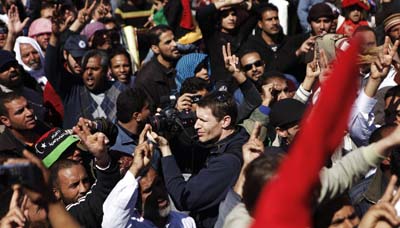
For conflict journalists, a need for first-aid training
Stop the bleeding. It’s a critical and fundamental step in aiding a journalist or anyone wounded in conflict. Hemorrhage is the number one preventable death on the battlefield. And yet large numbers of journalists covering wars and political unrest all across the world are untrained in this life-saving skill. It doesn’t need to be that…
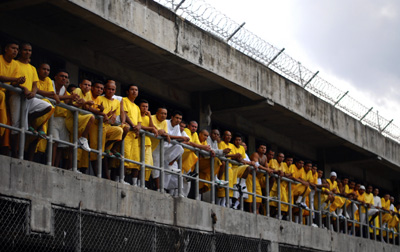
Why journalists need new ways to stay safe
After the Salvadoran online newsmagazine El Faro exposed a secret government deal with criminal gangs last month, its staff faced repercussions that illustrate the new and complicated risks facing journalists worldwide. El Faro’s report, which said the government provided more lenient treatment of imprisoned gangsters in exchange for the groups’ agreement to slow down their…
Internet giants submit to external free expression scrutiny
Journalists and bloggers in authoritarian countries have their work cut out thwarting governments that try to restrict their writing and reporting. The last thing they need to worry about is the provider of their publication platform helping authorities with censorship or surveillance. Cue the Global Network Initiative (GNI), a voluntary grouping of Internet companies, freedom…
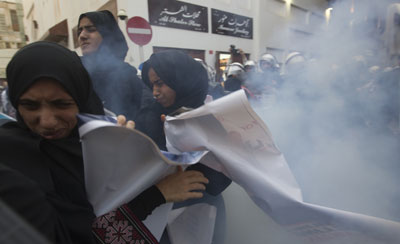
CPJ in joint call for release of bloggers, activists in Bahrain
CPJ is among 50 organizations that have signed a joint letter to Bahrain’s king calling for the release of detained bloggers, activists, and human rights defenders and to drop all charges that violate the right to peaceful expression ahead of the Formula One motor racing event to be held in Manama on April 22.
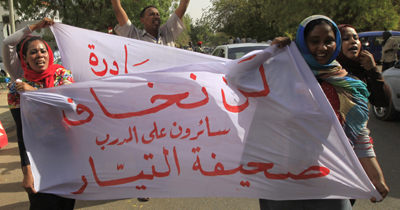
In Sudan, a new strategy to censor the press
Sudanese authorities have a long history of closing newspapers and silencing journalists. But the government security agents who carry out official censorship have launched a new strategy this year that focuses on economic impoverishment–leaving newspapers more vulnerable than ever.
Syrian cartoonist, attacked in August, returns to drawing
Syrian cartoonist Ali Ferzat is wielding his pen once more. According to news reports, the famous cartoonist, who suffered a severe beating in August, has regained 90 percent of the movement in his hands, which were deliberately targeted by his attackers before they dumped him on the side of a road.
Iraqi cybercrime bill is the worst kind
After the rash of political revolutions and criminal attacks on governments and companies last year, it wasn’t hard to predict that 2012 would be the year of a cybercrime crackdown. The United States is considering its own cybercrime legislation, and the European Union is seeking to harmonize its member state’s computer crime laws. Governments understandably…
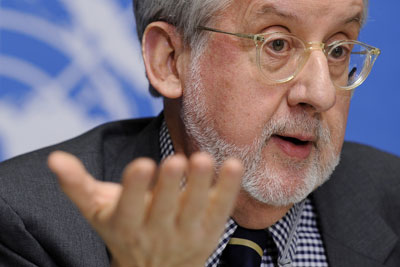
Chair of UN panel on Syria pledges to probe attacks
Paulo Pinheiro, the chair of the International Commission of Inquiry on the Syrian Arab Republic, is a seasoned diplomat trained in the tradition of Brazil’s foreign affairs ministry, Itamaraty, with its celebrated emphasis on impartial mediation, dialogue, and strong skepticism toward foreign intervention to resolve international conflicts.